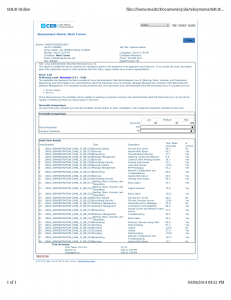The Intercept describes the NSA’s efforts to undermine networks by targeting the system administrators who job it is to keep them secure. If this doesn’t make system administrators angry there’s something seriously wrong.
Across the world, people who work as system administrators keep computer networks in order – and this has turned them into unwitting targets of the National Security Agency for simply doing their jobs. According to a secret document provided by NSA whistleblower Edward Snowden, the agency tracks down the private email and Facebook accounts of system administrators or sys admins, as they are often called, before hacking their computers to gain access to the networks they control.
The document consists of several posts – one of them is titled “I hunt sys admins” – that were published in 2012 on an internal discussion board hosted on the agency’s classified servers. They were written by an NSA official involved in the agency’s effort to break into foreign network routers, the devices that connect computer networks and transport data across the Internet. By infiltrating the computers of system administrators who work for foreign phone and Internet companies, the NSA can gain access to the calls and emails that flow over their networks.
The classified posts reveal how the NSA official aspired to create a database that would function as an international hit list of sys admins to potentially target. Yet the document makes clear that the admins are not suspected of any criminal activity – they are targeted only because they control access to networks the agency wants to infiltrate. “Who better to target than the person that already has the ‘keys to the kingdom’?” one of the posts says.
via Inside the NSA’s Secret Efforts to Hunt and Hack System Administrators – The Intercept.

